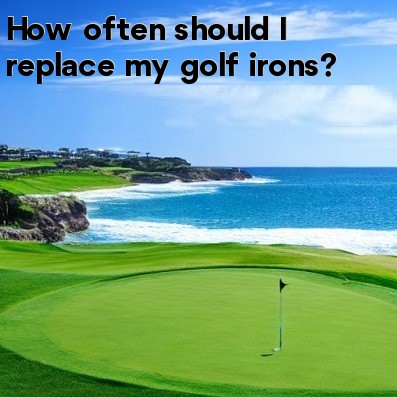
A common question among golfers is how often they should replace their golf irons. The lifespan of golf irons depends on several factors, including the quality of the irons, how often they are used, and the care taken to maintain them.
One of the main indicators that it may be time to replace your golf irons is the appearance of wear and tear. Over time, the clubheads can become scratched, dented, or worn down, which can affect their performance. Additionally, the grooves on the clubface can become worn, resulting in reduced spin and control. If you notice significant damage or signs of wear on your irons, it may be time to invest in a new set.
Another factor to consider is the frequency of use. If you are a frequent golfer who plays multiple times per week, your irons are likely to wear out faster compared to someone who only plays occasionally. The constant impact with the ground and the ball can take a toll on the clubheads and shafts. It's important to inspect your irons regularly for any signs of damage or performance decline.
The quality of the irons is also important to consider when determining their lifespan. High-quality irons made from durable materials are likely to last longer compared to lower-quality alternatives. Investing in a reputable brand and model can result in a set of irons that provides better longevity.
In addition to wear and tear, performance decline is another indication that it may be time to replace your golf irons. As irons age, they may lose their original performance characteristics, such as distance, accuracy, and forgiveness. If you find that you are consistently hitting shorter or less accurate shots compared to when your irons were new, it may be a sign that it's time for an upgrade.
It's worth noting that even if your irons are still in good condition, you may choose to replace them for other reasons. For example, if you have been playing with the same set of irons for many years, you may want to take advantage of the advancements in golf club technology. Newer irons often incorporate improvements in materials, design, and manufacturing, which can result in better performance. Trying out new irons at a golf store or consulting with a professional fitter can help you determine if upgrading would benefit your game.
Ultimately, there is no set timeframe for when you should replace your golf irons. It depends on various factors such as wear and tear, frequency of use, performance decline, and personal preferences. However, a general guideline is to consider replacing your irons every 3-5 years if you are a regular golfer. By keeping an eye on the condition and performance of your irons, you can ensure that you are playing with equipment that allows you to perform at your best.





